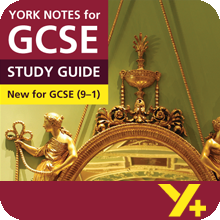Examiner's Notes
You assessed this answer as Grade 4.
Hover over the highlighted text to read the examiner’s comments.
Question: Read from: ‘“Let me be rightly understood”’ to ‘“if your nephew does not object to them, they can be nothing to you”’ (Vol. 3, Ch. 14). In this extract, Lady Catherine states her objections to Elizabeth marrying Darcy.
Starting with this extract, explore how Austen presents the relationships between Lady Catherine and Elizabeth.
Write about:
- how Austen presents Lady Catherine’s feelings in this extract
- how Austen presents the relationship between Lady Catherine and Elizabeth in the novel as a whole.
For a start, it seems that Lady Catherine views Darcy almost as her personal property when she says that, ‘while in their cradles, we planned the union.’ The fact that his marriage was ‘planned’ even when he was a baby shows how much control she thinks she should have over him. Now she thinks she can control Elizabeth in the same way.
Austen also shows that Lady Catherine has a spiteful, cruel side to her. We can see this when she says that Elizabeth is a young woman of ‘inferior birth, of no importance in the world, and wholly unallied to the family!’ In those days your family connections were very important. The word ‘inferior’ tells us that simply because of her family background she is not fit to be Darcy’s wife, so not only does she insult Elizabeth but her family too!
Austen also demonstrates this cruel side when Lady Catherine threatens Elizabeth. She says that Elizabeth ‘will be censured, slighted, and despised, by everyone connected with him. Your alliance will be a disgrace; your name will never even be mentioned by any of us. The words ‘despised’ and ‘disgrace’ tell us that she thinks the marriage will bring shame on them both and they will be rejected by society and also by friends and family. This is a proper threat as there could be many people, not just Lady Catherine, who would say the marriage ‘was unacceptable’.
Austen also shows how Lady Catherine tries to use emotional blackmail. She asks Elizabeth, ‘Is this your gratitude for my attentions to you last spring? Is nothing due to me on that score?’ These are rhetorical questions. They mean it is ‘payback’ time for Elizabeth and are meant to make her feel bad and to put her in her place. But they don’t because they have the opposite effect as Elizabeth does not feel she owes her anything in any case.
When Elizabeth first encountered Lady Catherine she was staying with Charlotte and Mr Collins and had already heard about Lady Catherine’s wealth and grandeur even how much Lady Catherine’s husband had spent on his windows. She did not feel intimidated, however, as she had not heard of Lady Catherine possessing any ‘extraordinary talents or miraculous virtue’.
During her first evening at Rosings Lady Catherine cross-questioned Elizabeth about herself and her family. ‘Elizabeth felt all the impertinence of her questions, but answered them very composedly.’ The word ‘impertinence’ is quite a surprising one as it suggests Lady Catherine is somehow being rude or cheeky and definitely not behaving as a grand lady should behave. Elizabeth manages to stay calm when she is at Rosings. She can see how Lady Catherine has got used to being flattered and guesses she may be the first person who has ever stood up to her.
In the extract Elizabeth is still not afraid of Lady Catherine but this time her rudeness and her interference make her angry. She stays calm for as long as she can but eventually she demands to go back to the house. It seems that their relationship is at an end when Lady Catherine says ‘I take no leave of you, Miss Bennet’ but Jane Austen puts another twist in the story.
